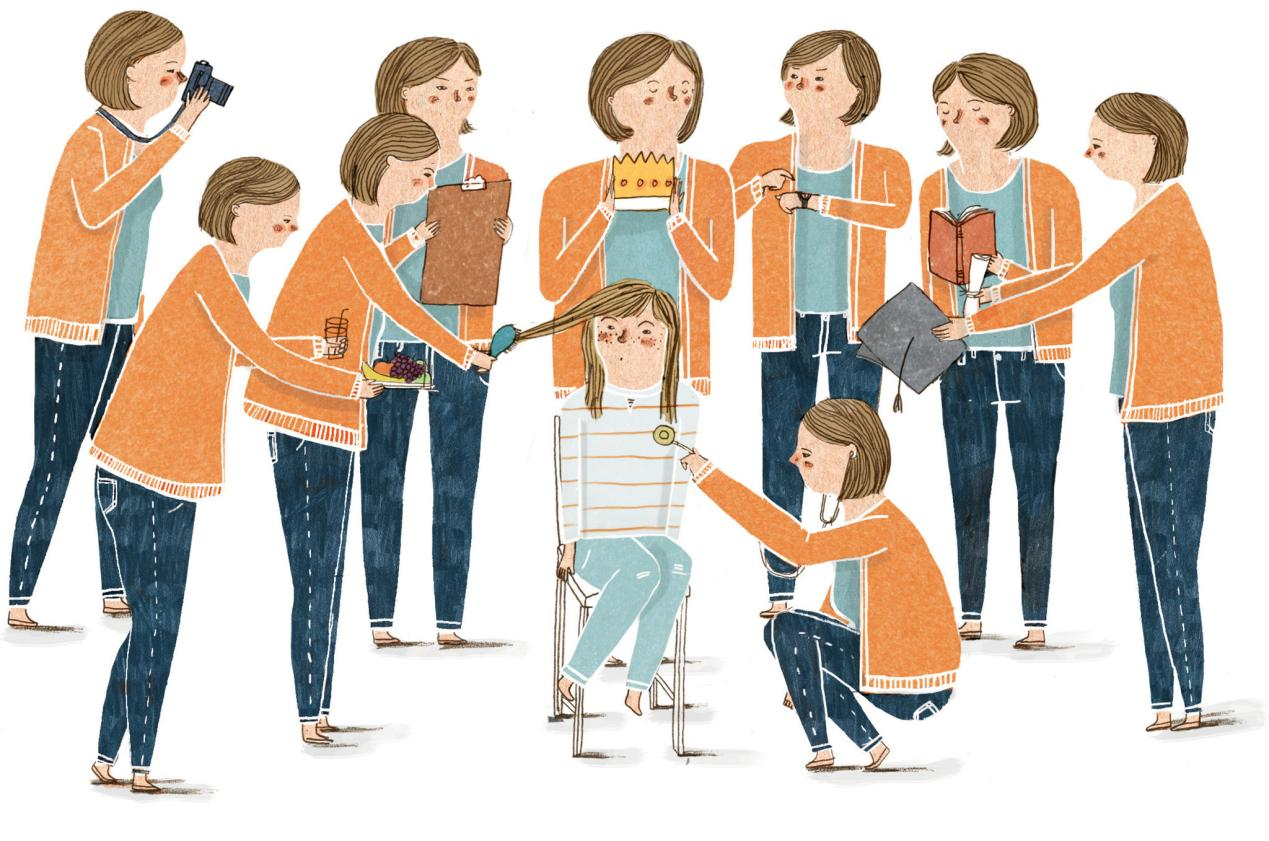
Overparenting(过度养育) is bad for children’s development. If you’re a nervous parent, how can you stop overparenting? Here are some ways.
1. Learn from other independent parents.
Develop relationships with other families who don’t overparent. This can be easier said than done. You might easily find parents who don’t overparent in some aspects(方面) but do in others. For example, they may not excessively(过分地) control their children in their friendships(友谊), but still force their children to take part in a lot of tutoring courses(课外辅导课).
2. Remember your own experiences of not being overparented.
Think about your own independence skills. How did you learn them? How did not being overparented help you when you were a child? What happy memories do you have of learning and playing independently? How did you like to spend your free time? How was not being overparented good for developing your skills?
3. Address your biggest fears.
What are your biggest fears about not overparenting? My biggest fear is my child’s safety(安全). Instead of worrying about everything, do something to solve the problem.
4. _________
You can’t just not overparent. You need to fill that void(空白) with other activities. Try to think about the situations in which you want to overpartent, and think out new plans for those situations. Then try them out. Try to develop your parenting skills. See yourself develop as you see your child develop.
Choose one of the best ways for you, but don’t try to finish all of these at a time.
本时文内容由奇速英语国际教育研究院原创编写,未经书面授权,禁止复制和任何商业用途,版权所有,侵权必究!(作者投稿及时文阅读定制请联系微信:18980471698)
1.What does the underlined sentence mean?
A Almost all parents are overparenting.
B You will find no parents overparenting.
C Some parents overparent but others don’t.
D Parents force their children to do something.
解析:选A。A句意理解题。根据该句前两句“Develop relationships with other families who don’t overparent. This can be easier said than done”可知,要找到不过度养育的家庭并不容易;划线句的字面意思是有的父母在这方面不过度养育,但在其他方面会过度养育,也就是说几乎所有父母都会过度养育。故选A。
2.How did the writer organize the third paragraph?
A By asking some questions.
B By giving some examples.
C By showing some numbers.
D By telling some stories.
解析:选A。A细节理解题。根据第三段可知,作者提了很多问题,让父母回忆自己未被父母过度干涉的快乐的童年经历,从而设身处地为自己的孩子着想。故选A。
3.What may trouble the writer most?
A His/Her child has many beautiful clothes.
B His/Her child doesn’t have any friend.
C His/Her child doesn’t like studying.
D His/Her child often gets home late.
解析:选D。D推理判断题。根据第四段“My biggest fear is my child’s safety.”可知,作者最担心自己孩子的安全问题,因此晚上回家晚这件事最可能让他/她担忧。故选D。
4.Which of the following can be put back into the blank?
A Don’t be angry.
B Call your teacher.
C Talk with your child.
D Learn new skills.
解析:选D。D段落大意题。根据第五段内容可知,该段主要鼓励父母学习新技能填补消除过度养育后的空白;结合段中的“Try to develop your parenting skills.”可判断,“学习新技能”最符合文意。故选D。
5.What is the structure(结构) of the passage? (①=Para.1 ②=Para.2 ③=Para.3 ...)
A ①②③/④⑤/⑥.
B ①/②③④⑤/⑥.
C ①/②/③④⑤⑥.
D ①②/③/④⑤⑥.
解析:选B。B推理判断题。通读全文可知,作者运用了“总—分—总”的结构。作者用第一段告诉我们过度养育对孩子的影响,第二至五段作者告诉我们一些停止过度养育的方法,最后一段鼓励我们尝试这些方法(但不要急于求成)。故选B。